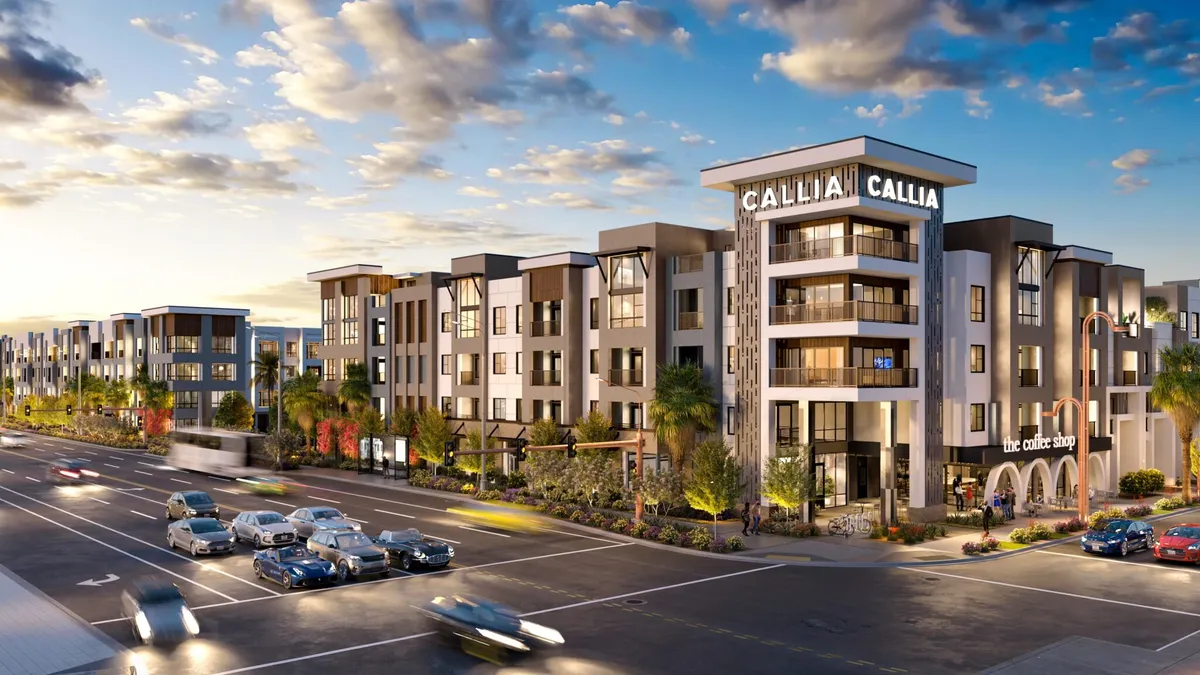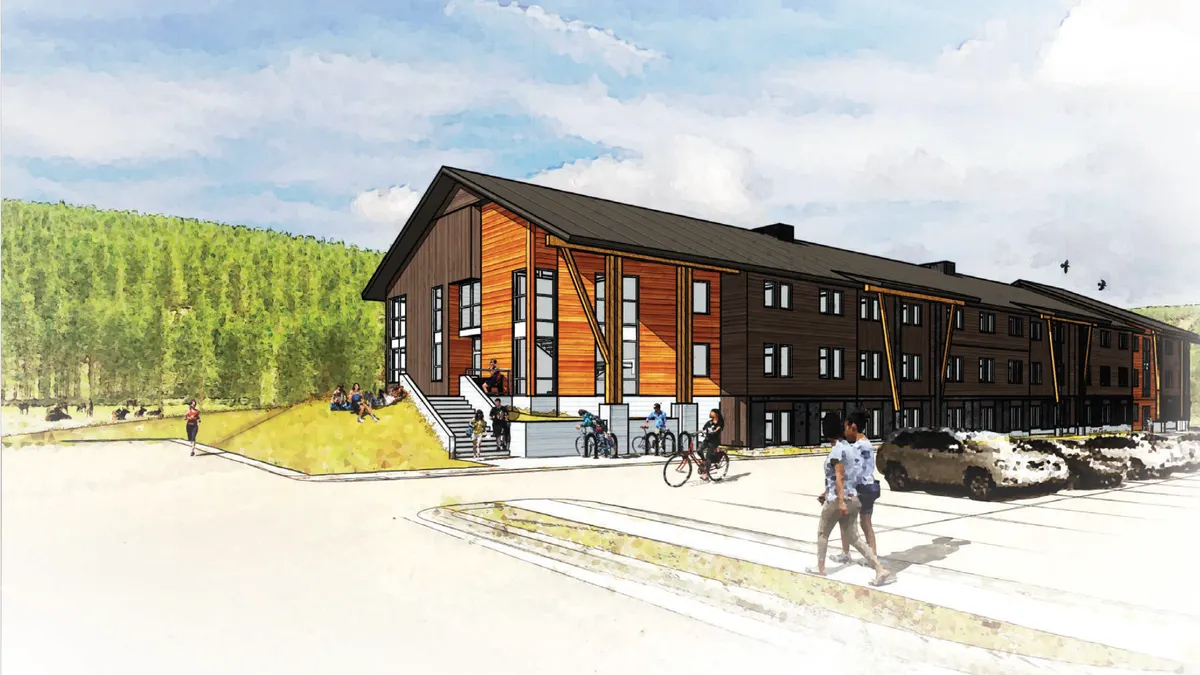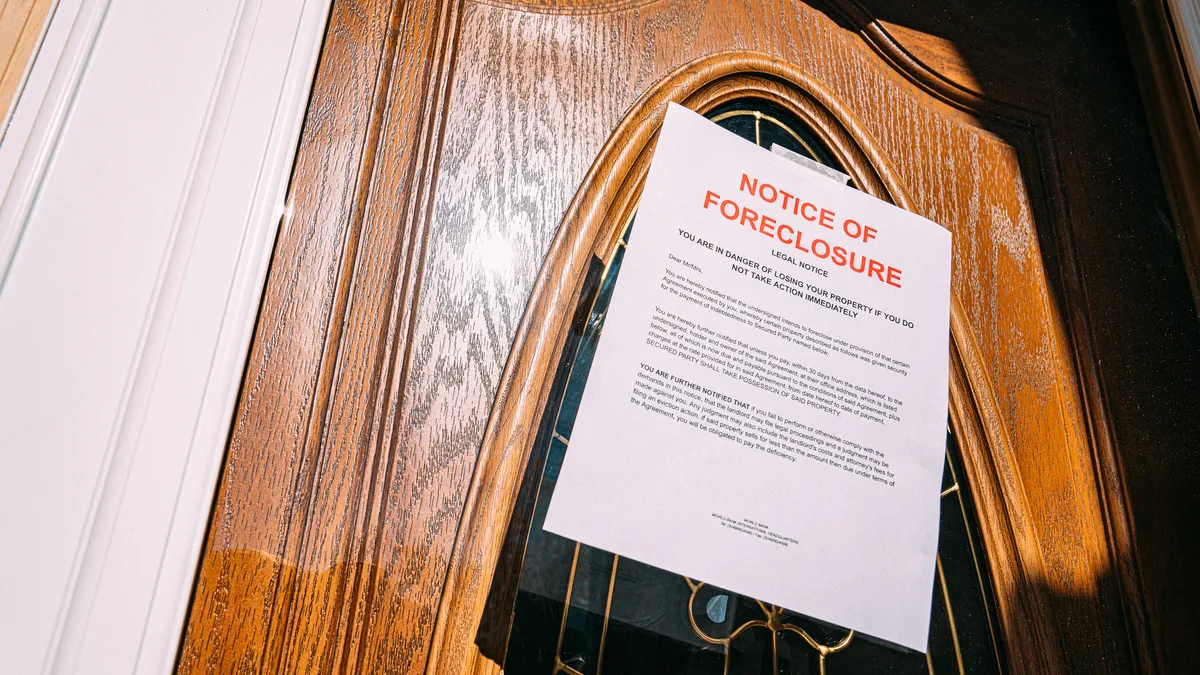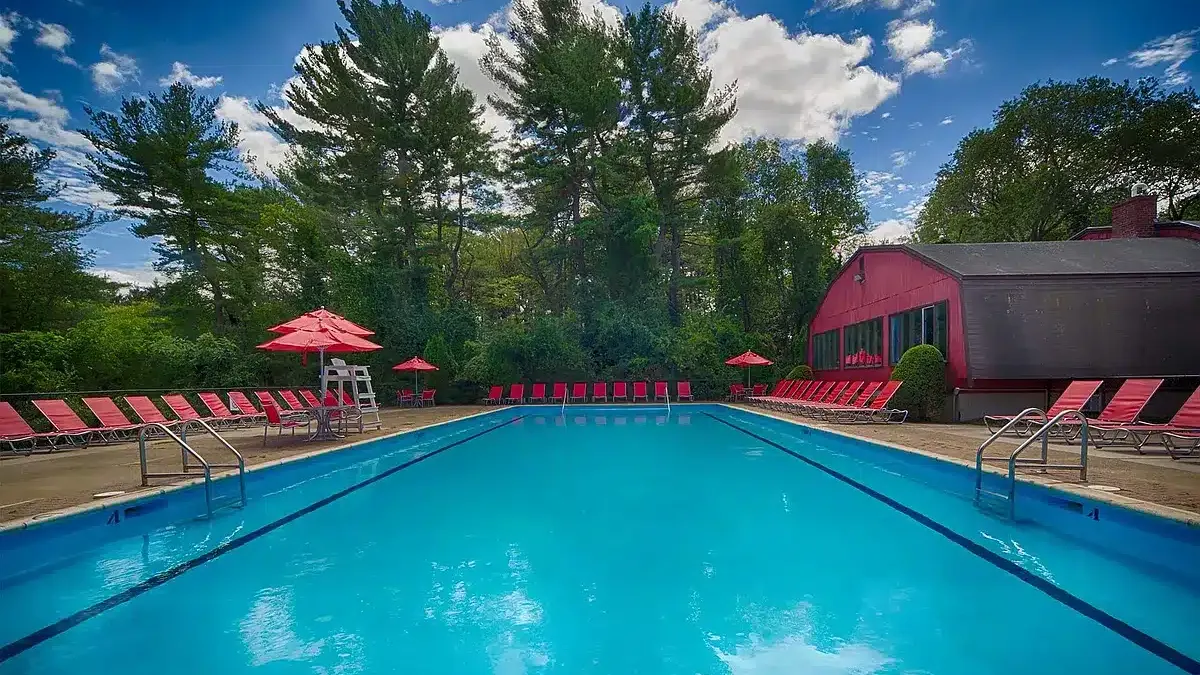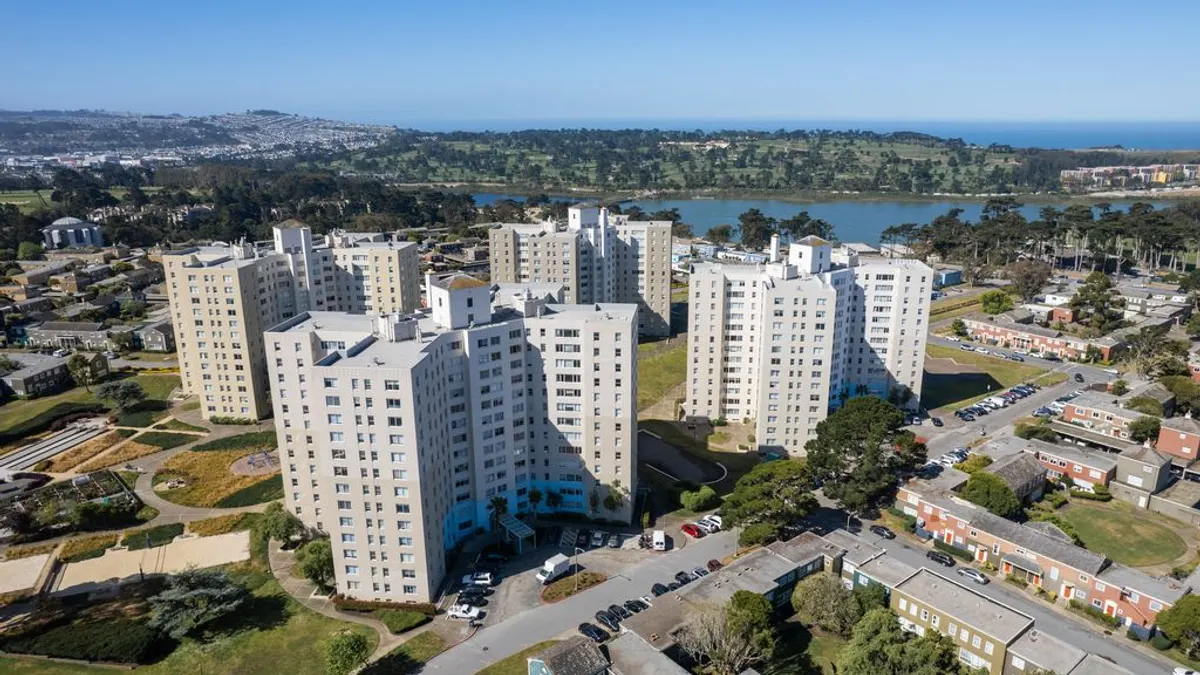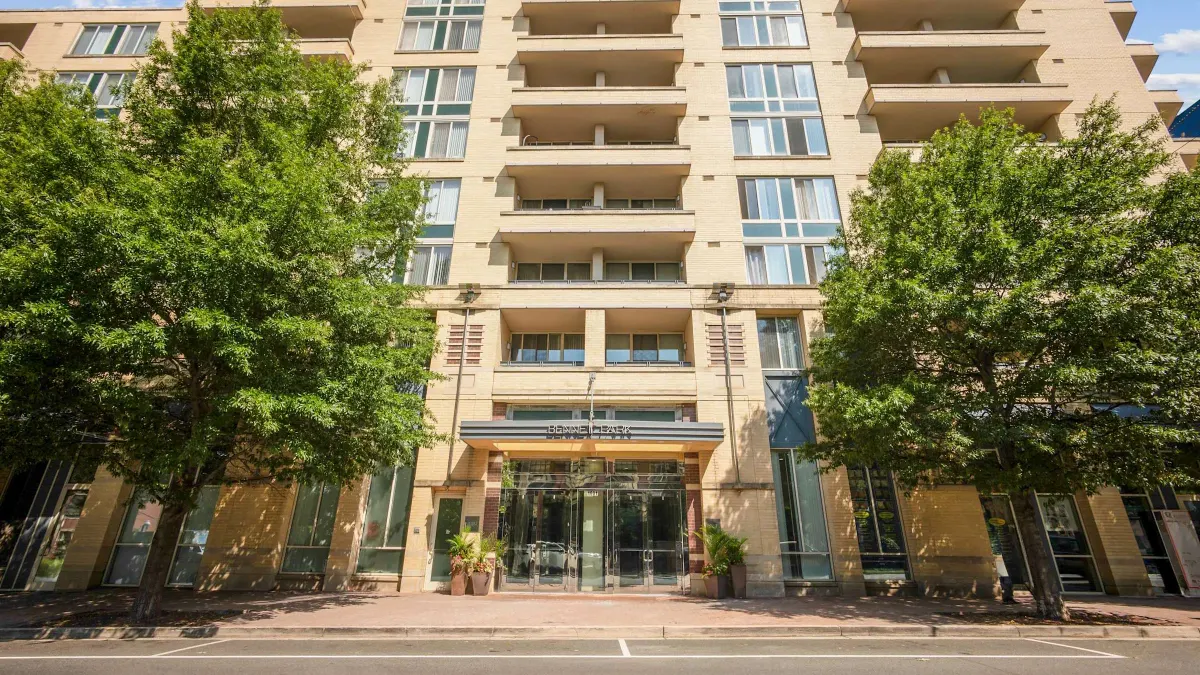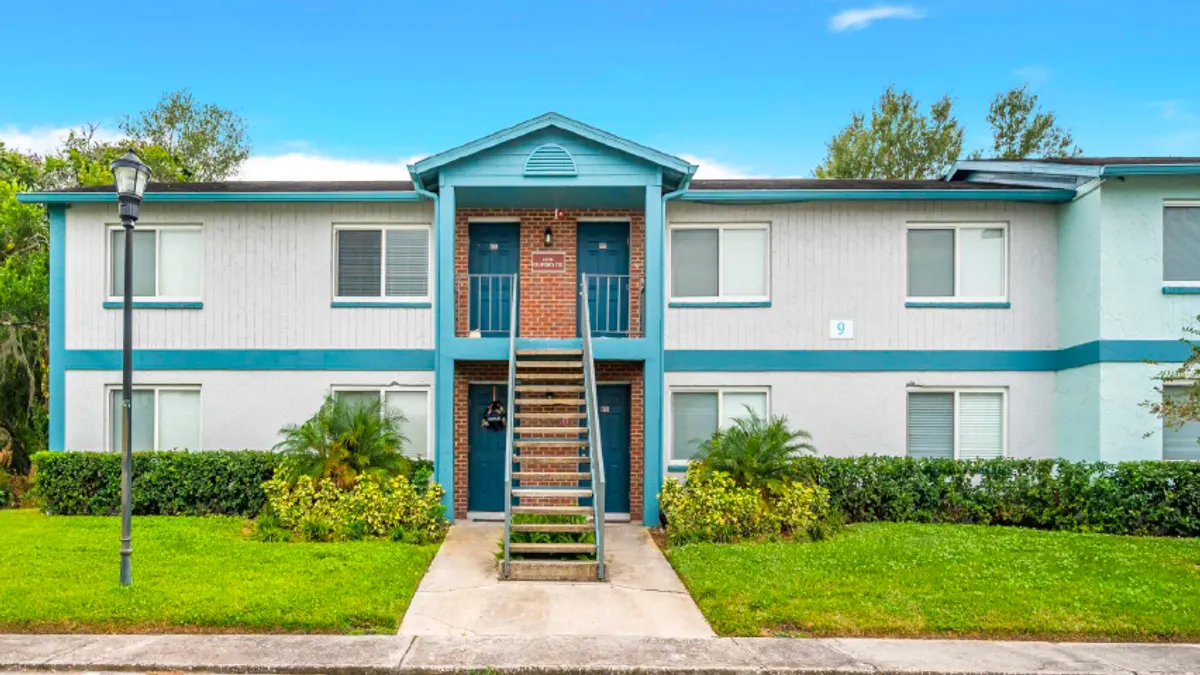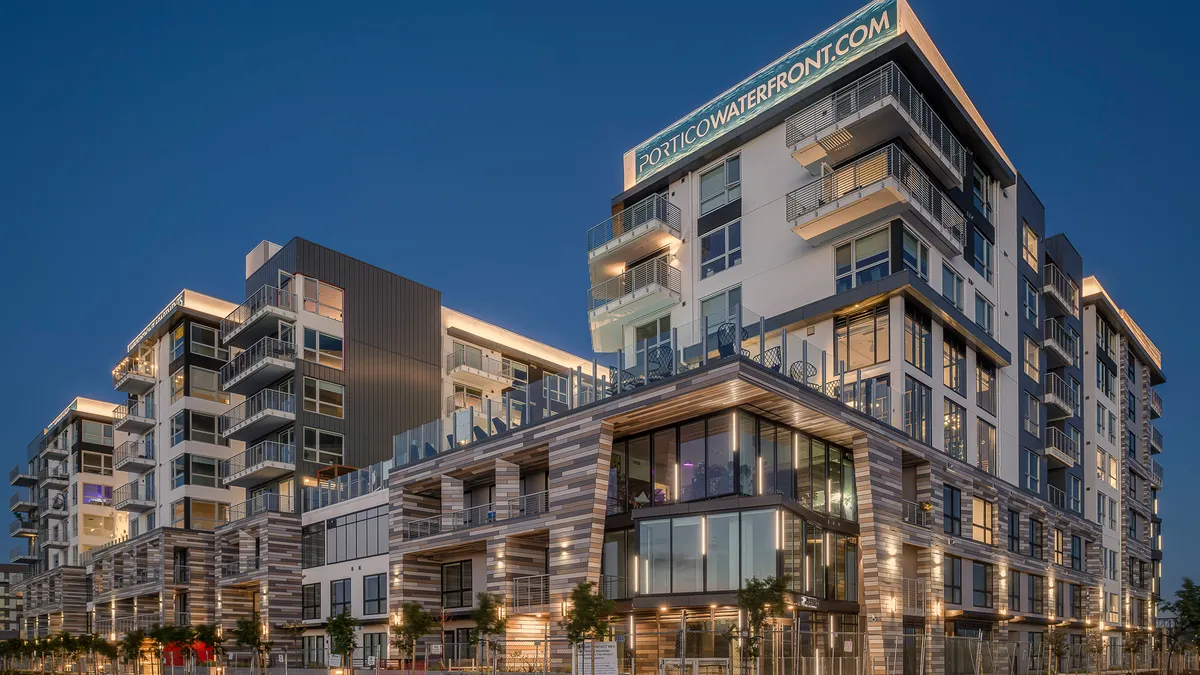Even in a slowing market for transactions and starts, many apartment firms have their sights set on growth over the next couple of years. Large REITs, like Arlington, Virginia-based AvalonBay Communities, want to expand into new regions, while operators like Atlanta-based The RADCO Cos. want to add thousands of units.
But these aren’t the only companies that want to grow. Under-the-radar owners, like The Davis Cos., also have their eyes on expansion. The Boston-based firm wants to triple the roughly 5,000 units it owns over the next few years. To help achieve that goal and expand in the Northeast and Sun Belt, it's bringing in Mai Zhang as senior vice president of asset management.
Zhang, who spent the last 10 years at Bethesda, Maryland-based commercial real estate REIT JBG Smith Properties, will play an instrumental role in the continued expansion of Davis’ multifamily investments, according to a news release shared with Multifamily Dive. At JBG, he led the operating strategy for approximately 6,500 units and oversaw value-add investment initiatives.
Davis currently owns a real estate portfolio of approximately 14.2 million square feet of office, healthcare and life science, industrial, retail and hospitality properties along with its apartments.
“Davis is always thinking of creative ways to make real investments,” Zhang told Multifamily Dive. “If you're looking at the portfolio, it ranges from high-intellectual workplaces to multifamily to recreational vehicle parks to distressed CMBS. So it's really anything where it can creatively generate maximum value for investors, which is part of the draw for me.”
Here, Zhang talks with Multifamily Dive about the challenges of his new role, the transaction market and the importance of providing housing at different income levels.
This interview has been edited for brevity and clarity.
MULTIFAMILY DIVE: What’s your biggest challenge stepping into this new role?
MAI ZHANG: I’m coming from JBG, where we had a geographic concentration in one market. I’m going to a company that is really investing across the asset spectrum. We own brand new Class A to workforce housing. And, we’re doing it on a national scale. It's going to take some time to get up to speed and really think through the differences in costs and regulations and how things are done in different jurisdictions. Before it was three jurisdictions — Maryland, Virginia and Washington, D.C. Now, it's 20 or more.
How does Davis produce workforce housing?
We're really keenly aware of the need for more housing in Boston and nationally and the need to address the current housing crisis. We're going to play a pivotal role in bringing quality projects online. I think that means both developing new and rehabilitating old properties.

A fair amount of the current operating portfolio today actually consists of affordable workforce housing — where Davis is doing extensive renovations. The neat thing about that is upon completion, they'll still cater to the workforce housing demographic, but they'll dramatically improve the living conditions for the tenants.
Obviously, transactions have slowed dramatically. Do you see capital on the sidelines waiting to find deals?
If you look at the stats around how much money has been raised over the past year or two, it's actually at record highs. Blackstone just raised a $30 billion fund. And that's kind of similar across all the real estate managers. But then, at the same time, you're dealing with the issues around financing and making deals pencil out.
Do you think the transaction slowdown is a short-term issue?
I'm pretty optimistic because I feel like the headwinds and things keeping people from doing deals are really related to interest rates and inflation. In my opinion, that has largely been resolved at this point.
When you look at inflation excluding the lagging rent indicator, which usually lasts about 12 months or a year, you have inflation levels right around 1%. That's well below the Fed levels of 2%. So over the next six to 12 months, activity will definitely pick up.
Are you seeing rising interest rates forcing apartment owners to sell?
I haven't seen that, particularly in multifamily. I think that's more something that's really impacting commercial office space. Class B office has just been structurally impaired. And that’s just the new normal going forward. But in multifamily now, that's certainly not the case.
Click here to sign up to receive multifamily and apartment news like this article in your inbox every weekday.



